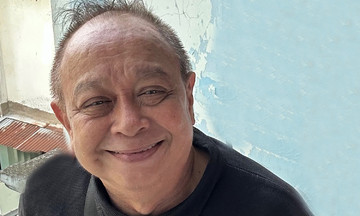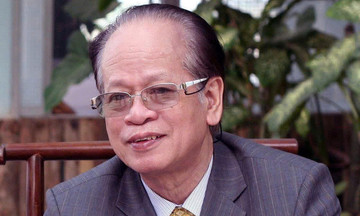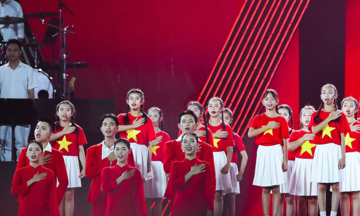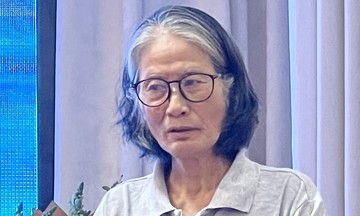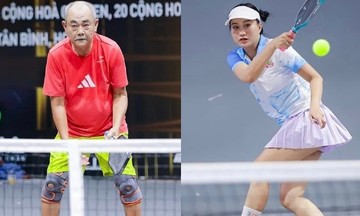The film "Red Rain" has recently moved and captivated audiences. On social media, many posts share reactions after watching the film, along with excerpts from Le Ba Duong's poem, "Words by the River," also about the Quang Tri Citadel, the site of the battle. The poem, etched on stone monuments on both the north and south banks of the Thach Han River, reflects the thoughts of a soldier returning to the old battlefield, commemorating fallen comrades:
"Boat on the Thach Han, row gently
Beneath the river, my friends lie
At twenty, they became the waves
Soothing the shore, forevermore."
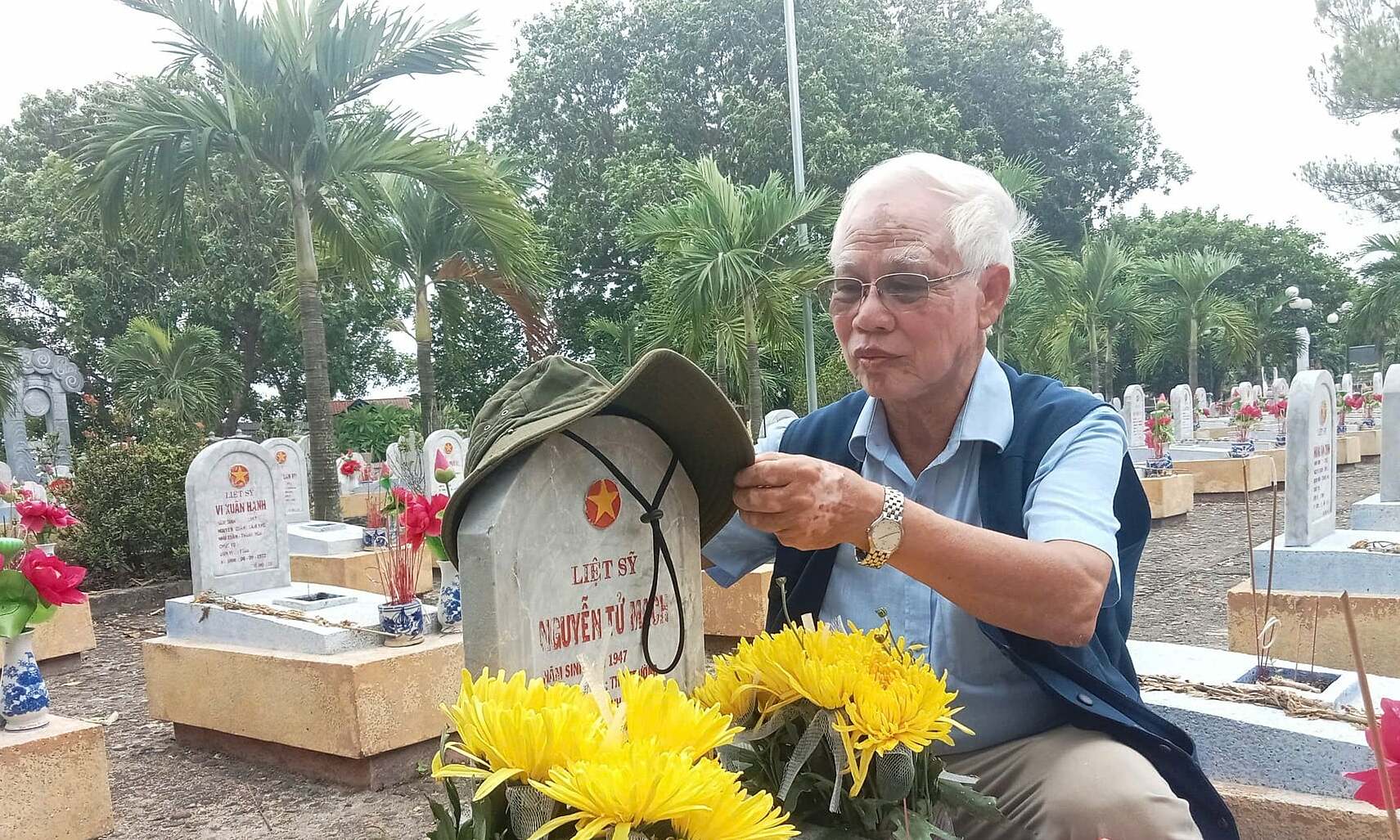 |
Poet Le Ba Duong visiting the Quang Tri battlefield in July. Photo courtesy of the subject |
Poet Le Ba Duong visiting the Quang Tri battlefield in July. Photo courtesy of the subject
"Words by the River" was written on the afternoon of 27/7/1987, after the poet visited the battlefield to pay tribute to his comrades. Sitting alone by the Thach Han River, he watched boats going upstream to Quang Tri market. Seeing the oars stirring the water, he thought of his friends, the soldiers who lay forever at the bottom of the river. He wrote the poem as a plea, a message to each person in the bustling "market of life," with the original verses being:
"Boat on the Thach Han, please row gently
Beneath the river, my friends lie.
When the market closes, and boats row downstream in haste
Please, please don't disturb the clear stream."
Over time, the author made several changes to arrive at the current version of the poem. In 1990, writer Do Kim Cuong commented: "The poem is very moving, but too heartbreaking. And about the wording, is it appropriate to repeat the word 'please' so many times?" The author then reflected and changed "please" in the first line to "oh..." – an interjection used to call a boat in the Quang Tri dialect. Using "oh boat...", or similar terms, doesn't diminish the plea but creates an echo in the sacred space of Thach Han. He rewrote the last two lines: "At twenty, they became the waves/ Soothing the shore, forevermore."
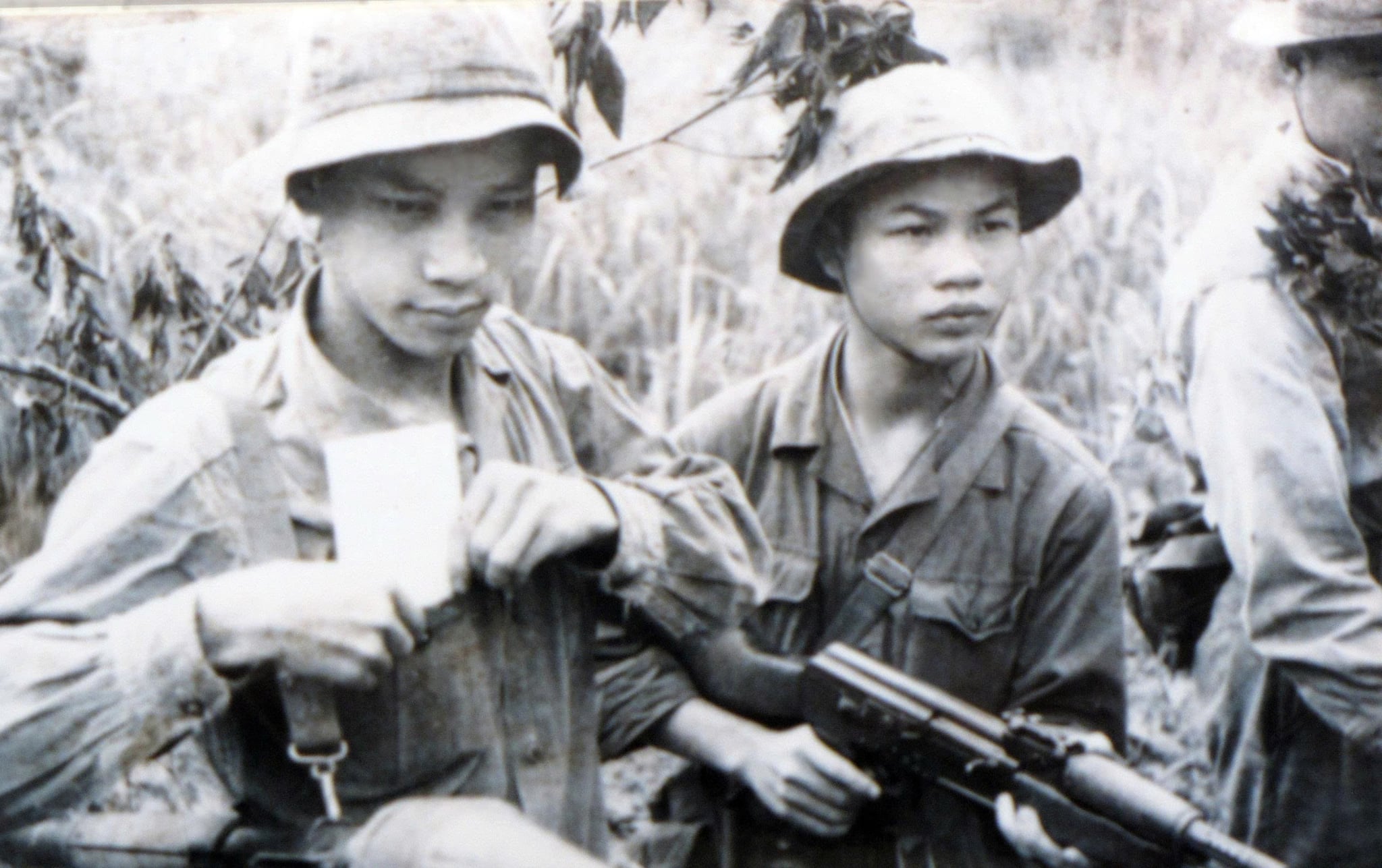 |
Platoon leader Le Ba Duong (right) with his comrades fighting on a reconnaissance hill on 20/6/1971. Photo courtesy of the subject |
Platoon leader Le Ba Duong (right) with his comrades fighting on a reconnaissance hill on 20/6/1971. Photo courtesy of the subject
The poem, often recited orally, has given rise to variations. Specifically, in the first line, many people mistake "upstream" for "downstream." However, the author intended to use "upstream" to emphasize the effort required to row against the current.
Regarding the phrase "forevermore" in the last line, some variations use different wording. The author believes that the river, the "waves" of twenty-year-olds, is no longer a tangible entity like shifting shores, but has transformed into a stream of consciousness. Therefore, the original wording should be preserved to ensure the intended transformation of the finite into the infinite, representing the heroes' sacrifice, merging with the Thach Han River.
Nevertheless, the poet feels that reading the original or any variation conveys the full sentiment and spirit he intended. Therefore, he doesn't place excessive importance on rigid interpretations. "I still consider the poem to be the heartfelt voice of everyone, written with the blood and bones of our compatriots and comrades. In it, we see the gratitude of the generation living in peacetime, yet still burdened by the memory of those who sacrificed their youth for the country," he said.
For nearly 40 years, "Words by the River" has become one of the most enduring poems about the battle to defend the Quang Tri Citadel, inspiring many composers: "Eternal Epic" (Kien Ninh), "Boat on the Thach Han" (Tran Bac Hai). The poem is often recited during national holidays and events.
Along with "Words by the River," he has written many other poems about soldiers and his former comrades. Recalling the days when comrades relied on each other in battle, he penned an untitled poem:
"Like the days we ate amid bullets, slept amid bombs
Like the days we shared bandages
Hiding our own wounds
Like the days we piled stones
Burying our comrades by the dry stream
So that at life's end, our hearts still turn back to those days."
The poem evokes memories of camaraderie during the war. His comrade, Phan Ngoc Le, was wounded, his entire chest torn open. The wound was deep and wide, requiring more than one bandage. Despite being wounded himself, he concealed his pain and gave his only bandage to his friend. When Le uttered his last words, "I won't survive," and urged him to bandage himself, he lied, saying the blood on him was his friend's. He recounted how, back then, people would embrace death to give their comrades a chance at life. So today, he continues their unfinished stories.
These days, he shares the joy of Independence Day with the entire nation. But the poet feels a pang of sadness for the many comrades who didn't get to live in the peace and happiness they fought for. This feeling has stayed with him since reunification, when he returned without those who had faced life and death with him.
In his seventies, he desires nothing more than good health to visit battlefields, searching for traces of those who fell. Every year since the war ended, he visits the Quang Tri Citadel dozens of times, fulfilling his promise to bring his comrades home. This year, he and other veterans found the remains of 12 martyrs.
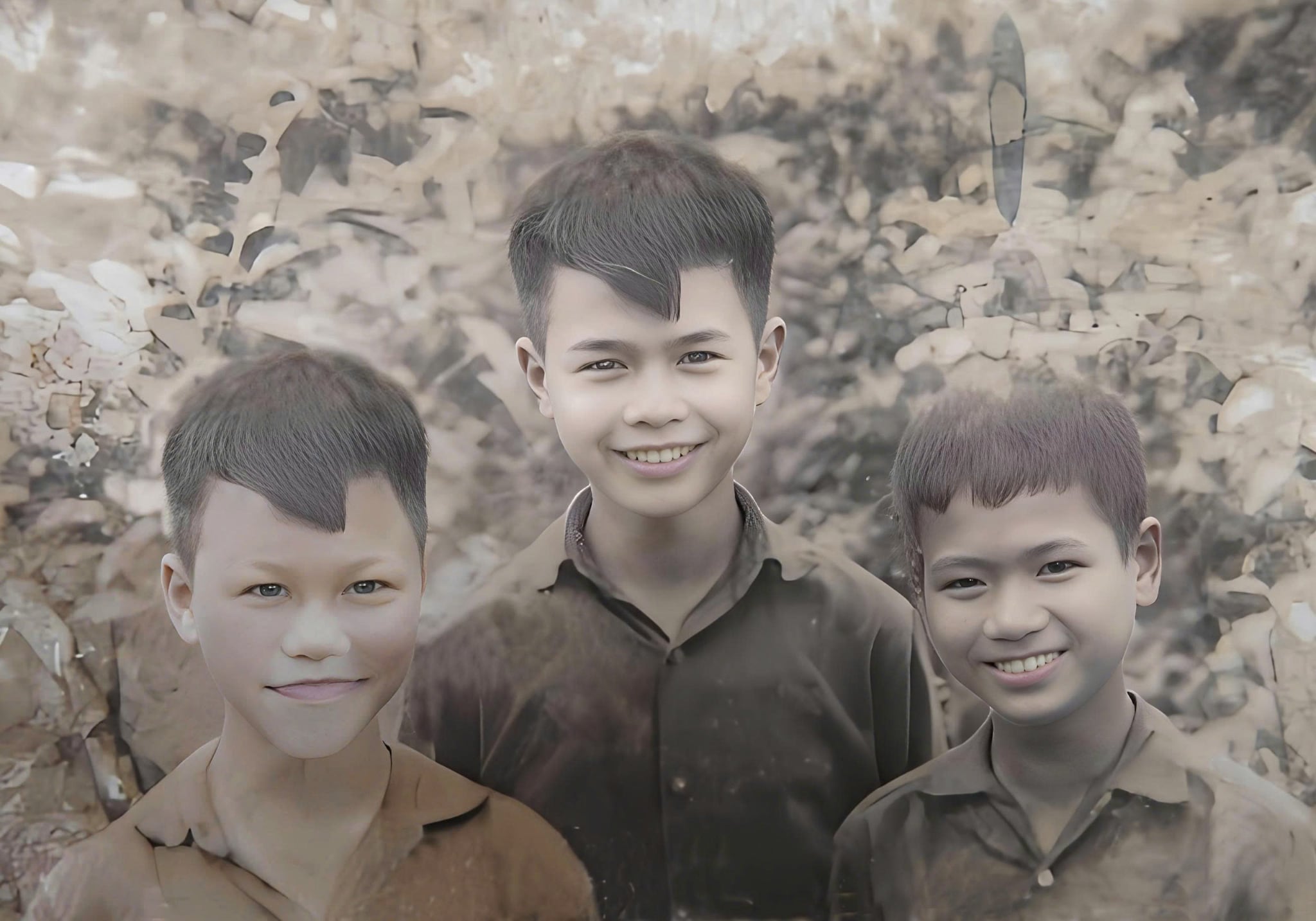 |
A restored photo, poet Le Ba Duong (far left) with two classmates from 7B on 1/4/1968, nine days before enlisting. Photo courtesy of the subject |
A restored photo, poet Le Ba Duong (far left) with two classmates from 7B on 1/4/1968, nine days before enlisting. Photo courtesy of the subject
Born in Nghe An, poet Le Ba Duong added three years to his age to enlist early at just 15 (in 1968). He was assigned to the 3rd Company, 2nd Battalion, 27th Regiment, B5 Front, fighting on Route 9 in Quang Tri. He distinguished himself in his first battles, becoming a Second Class American-Killing Hero at 15 years and 49 days old. He also received seven other titles, from Third Class to Excellent, for his bravery in combat.
His achievements inspired movements like "Attack like Le Ba Duong" and "Hold firm like Le Ba Duong" on the B5 Route 9 front. In peacetime, he worked as a reporter and photographer.
Khanh Linh




